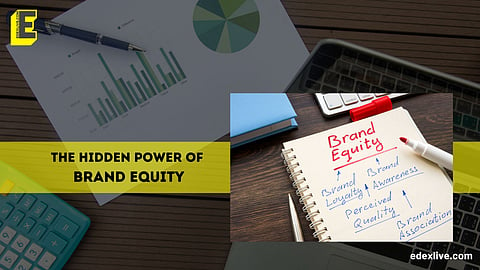

In an era defined by market saturation and an abundance of consumer choice, businesses are engaged in an unrelenting quest for distinction.
Amidst a landscape of near-identical offerings, brand equity emerges as a vital intangible asset that allows businesses to transcend mere commoditisation and forge a distinctive, enduring identity that resonates with consumers on both rational and emotional levels.
Brand equity isn't just about logos or catchy slogans; it's the extra value consumers assign to products simply because of the brand name.
Marketing expert David Aaker identified five key components: brand awareness, associations, perceived quality, loyalty, and proprietary assets like trademarks.
Brand awareness – How well consumers recognise and recall a brand.
Brand associations – The attributes and qualities consumers link to a brand.
Perceived quality – Consumers’ judgment of a brand’s overall excellence.
Brand loyalty – The strength of consumers’ commitment and repeat purchase behaviour.
Proprietary assets – Legal protections like trademarks and patents that secure brand identity.
Together, these elements form a compelling force that can transform ordinary products into market leaders.
Apple exemplifies this power through its ecosystem effect, wherein consumers demonstrate unwavering loyalty across product categories, driven by accumulated positive experiences and emotional attachment to the brand's ethos.
This loyalty enables Apple to command premium prices that competitors struggle to match, demonstrating how brand equity translates directly into financial advantage.
Similarly, Coca-Cola has maintained market leadership for decades despite countless beverage competitors, demonstrating brand equity's enduring power. Their consistent global messaging reinforces brand identity, creating an emotional connection that transcends product features.
The financial impact proves to be substantial.
Companies with high brand equity consistently outperform competitors in sales, profits, and shareholder value. Luxury brands like Rolex and Louis Vuitton command premium prices because consumers perceive inherent value beyond production costs, a testament to brand equity's most tangible manifestation.
However, modern brands face unprecedented challenges.
Social media can instantaneously transform isolated incidents into reputational crises, while evolving consumer sensibilities toward sustainability and technological innovation demand continuous adaptation.
The Volkswagen emissions scandal demonstrates how quickly decades of built equity can erode, highlighting the fragile nature of brand reputation.
In our choice rich world, brand equity often determines commercial destiny. Companies investing in consistent branding, quality, innovation, and customer engagement don't merely survive, they thrive.
Strong brands create lasting competitive advantages that physical products alone cannot replicate, making brand equity one of the most valuable assets any business can possess in an increasingly crowded marketplace.
